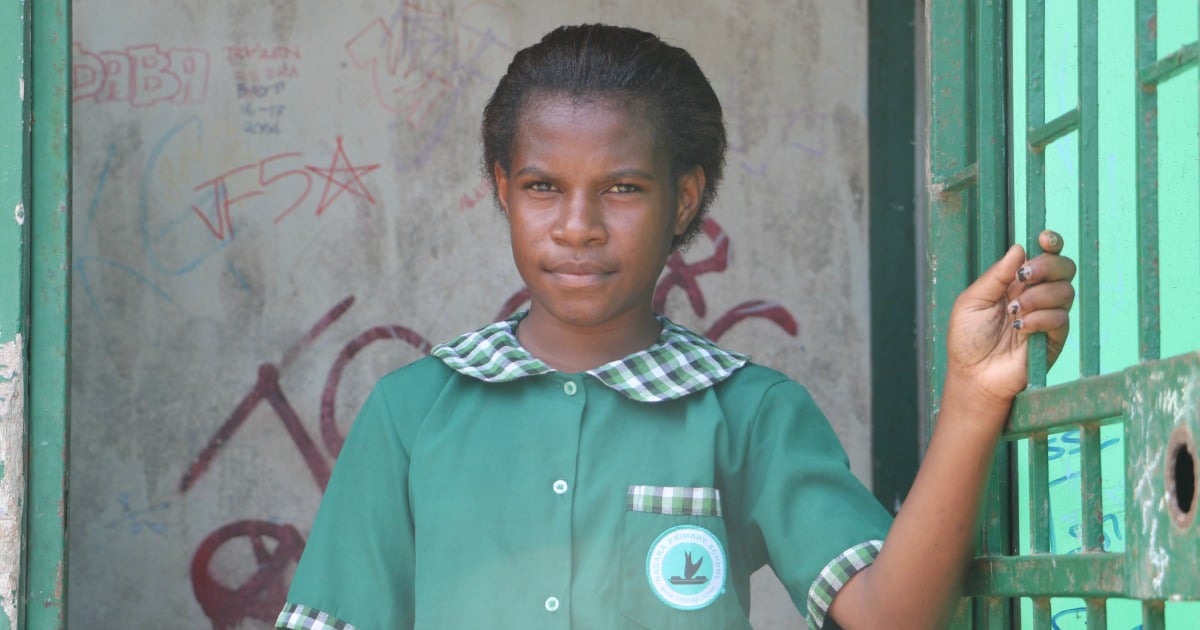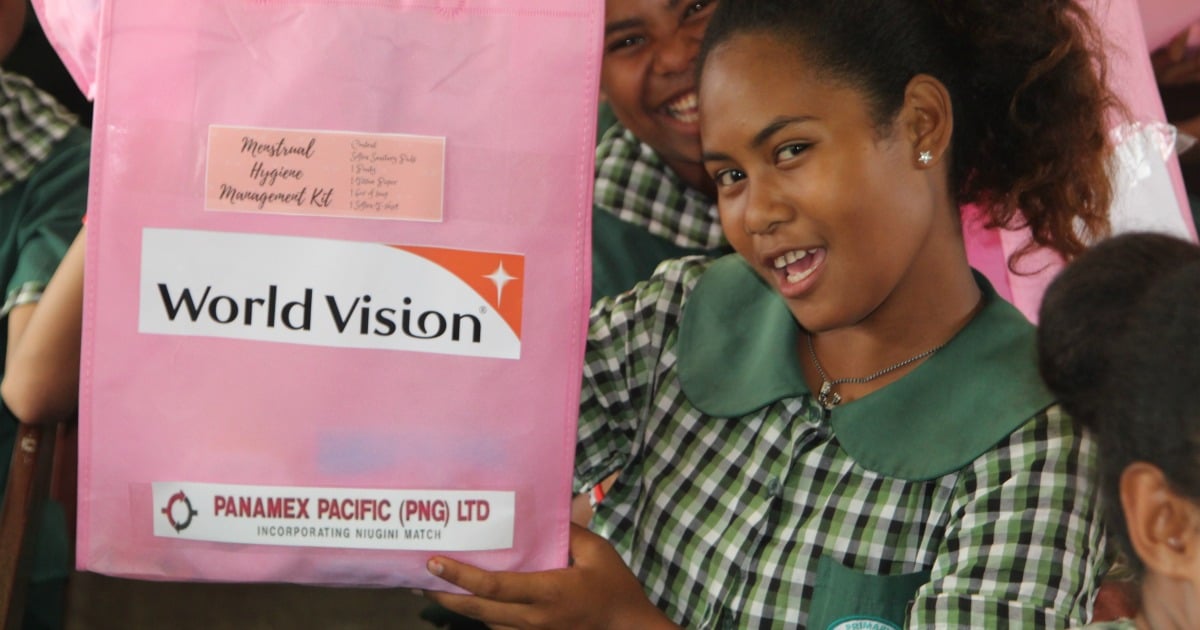Thirteen-year old Valerie Oa is helping to break down the taboos around menstrual hygiene in her Port Moresby village. On the International Day of the Girl Child she tells us how…
My name is Valerie Oa. Where I live Hanuabada Village in Papua New Guinea, periods are taboo. Boys don’t know about them. When girls have their periods we are not allowed to prepare food. My grandma says to me that I cannot come into the kitchen. So when I have my period I sit down and watch the others cook.
And if my aunt and her children come over when I have my period I don’t touch the children. I go and sit in the other room. At school, I don’t play sports. I just watch others play.
When I first got my period, I didn’t know very much about it. I was scared. I had seen boys laughing at the girls when their skirts got stained. I was frightened that would happen to me.
My cousin, when she first got it, she didn’t know what to do. Her parents leaned more to the custom side of things, so she stayed in her room and didn’t move around.
She wouldn’t go to school. She would miss one week of school each month. She was a high marks student but then she started failing. I want to keep going to school. I like writing stories. One day, when I grow up, I would like to be a lawyer – to do that my English has to be good!
But because my mother died when I was ten years old she couldn’t tell me about it. I only have my grandma to teach me things like this. She taught me how to use pads. Sometimes there are no pads, only cloth pads. Homemade pads can leak.
I didn’t know much about menstrual hygiene.






























































































